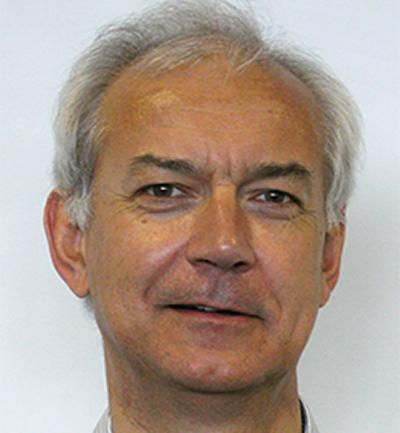Research interests
My work involves studying the extent to which health and disease in adult life are associated with growth trajectories early in life. This is done through the following international collaborations.
Helsinki
The Helsinki Birth Cohort Study includes 20,000 men and women born during 1924-44. The Finnish population have had a unique identification number since 1970 and we have used this to link their birth, infant welfare clinic and school records to current registers of death, hospital admission, cancer, reimbursed medication and also to the five-yearly census record. 2500 of the men and women have visited our clinics. We relate the trajectory of growth through birth, infancy, childhood and adult life to the risk of disease, controlling for socio-economic factors such as education, income and occupation. We use the cohort to study inter-generational risk transmission, the process of ageing and genetic factors.
Netherlands
We study the consequence on adult health of in utero exposure to the Dutch famine of 1944/45. A previously well-nourished population experienced a period of severe nutritional deprivation, resulting in much starvation. We group today’s adults of that generation according to their trimester of intra-uterine exposure to famine and search for critical periods of development for adult conditions.
I also advise The Amsterdam ABCD study of pregnancy and child health and well-being.
India
I am a researcher on the New Delhi Birth Cohort Study, in which we study 1500 men and women born in the city around 1970, regularly measured from birth through childhood and adolescence, who have visited research clinics as adults.
I am also an honorary member of Sneha, the Indian society for the study of the developmental origins of disease, and collaborate with researchers from several other institutions, including KEM Hospital, Pune.
Jamaica
I am part of “The Vulnerable Windows Study”, which includes 700 mothers, born in Kingston around 1993-5, who had ultrasound scans at six time-points in pregnancy and their offspring, who visit the clinic for follow-up measurements every six months.
I also look for long-term effects in adult of severe acute malnutrition in childhood, using data collected over many years at the Tropical Medicine Research Institute at The University of the West Indies.
Scandinavia
I have been statistical advisor to the “Nordic Network” of studies on the developmental origins of health and disease.
Developing countries
I am statistical advisor to the “Cohorts” network of five longitudinal birth cohort studies in developing countries – Brazil, Guatemala, India, Philippines and South Africa.
Thailand
I have been statistical advisor to the Thailand Research Association for Child and Family Development.
France
I advise a study in Marseille testing the French health record, a booklet retained by each citizen that includes measurements of height and weight at fixed points through childhood, to characterise growth trajectory and relate this to the structure and function of the heart.
Saudi Arabia
I work with physiologists in the Zoology department at King Saud University, studying long-term consequences of placental size, growth and structure.
World Health Organisation
I worked on a meta-analysis of whether maternal micronutrient supplementation in developing countries is associated with an increase in baby’s birthweight and an improvement in infant survival.
University of Southampton
I collaborate with researchers from the Medical School’s Human Development and Health division and advise the other statisticians in our group.
Collaborators
Professor Bo Abrahamsen, Glostrup Hospital, Denmark
Dr Saleh Al-wasel, King Saud University, Saudi Arabia
Professor Linda Adair, University of North Carolina, USA (COHORTS collaboration)
Dr Marieke de Beer, Free University, Amsterdam, The Netherlands
Professor Johan Eriksson, Helsinki University, Finland
Professor Caroline Fall, University of Southampton
Professor Tom Fleming, University of Southampton, UK
Professor Terrence Forrester, University of the West Indies
Dr Eero Kajantie, National Public Health Institute, Helsinki, Finland
Professor Dan Lackland, Medical University of South Carolina, USA
Professor Michelle Lampl, Emory University, USA
Professor Andrew Lotery, University of Southampton, UK
Professor Francisco Mardones, Santiago, Chile
Professor Reynaldo Martorel, Emory University, USA (COHORTS collaboration)
Professor Shane Norris, University of Witwatersrand, South Africa (COHORTS collaboration)
Professor David Phillips, University of Southampton
Professor Katri Raikkonen, Helsinki University, Finland
Professor Tessa Roseboom, University of Amsterdam, The Netherlands.
Professor Harshpal Singh Sachdev, Sitaram Bhartia Hospital, New Delhi, India.
Professor Graham Serjeant, Sickle Cell Trust, Kingston, Jamaica
Professor Umberto Simeoni, Centre Hospitalier Universitaire Vaudois, Lausanne, Switzerland
Professor Thorkild Sorensen, Copenhagen, Denmark
Professor Minerva Thame, University of the West Indies
Professor Kent Thornburg, Oregon Health and Science University, Portland, USA
Professor Cesar Victora, University of Pelotas, Brazil
Professor Susan Walker, University of the West Indies
Professor Chittaranjan Yajnik, KEM Hospital Pune, India
Research group
Human Development and Health
Affiliate research group
Human Development and Physiology
